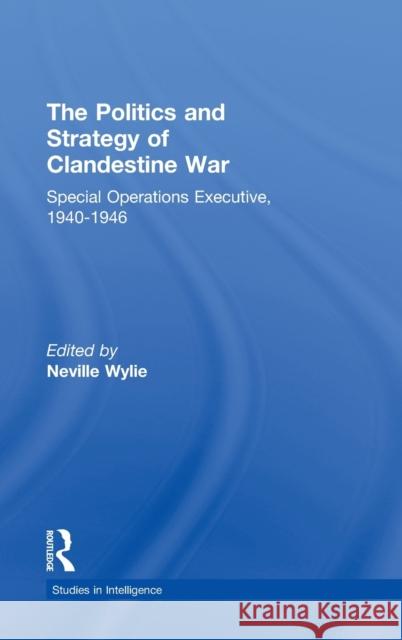The Politics and Strategy of Clandestine War: Special Operations Executive, 1940-1946 » książka
The Politics and Strategy of Clandestine War: Special Operations Executive, 1940-1946
ISBN-13: 9780415391108 / Angielski / Twarda / 2006 / 224 str.
The Politics and Strategy of Clandestine War: Special Operations Executive, 1940-1946
ISBN-13: 9780415391108 / Angielski / Twarda / 2006 / 224 str.
(netto: 696,83 VAT: 5%)
Najniższa cena z 30 dni: 705,23
ok. 22 dni roboczych.
Darmowa dostawa!
This collection of essays on Britain's Special Operations Executive (SOE) sets out to meet two discrete objectives. The first is to explore the "non-military" aspects of British "special operations" over the course of the Second World War. SOE was established in the summer of 1940 to "set Europe ablaze," as Churchill memorably put it. This was a task it was meant to achieve by detonating popular resistance against Axis rule, and nurturing "secret armies," which might be capable of providing military and other forms of assistance for British forces when they were once again able to return to the offensive and conduct land operations in Europe. Naturally, most writing on SOE reflects these early priorities and devotes its attention to assessing SOE's contribution to Britain's military effort. Fostering resistance movements in enemy occupied territory was, however, only one aspect of SOE's war. The primary objective of the essays collected in this volume is to highlight the numerous other areas in which SOE was able to contribute to Britain's war effort. As these essays show, SOE played a major role in supporting Britain's political, economic, financial and humanitarian interests, in Europe, the Middle East and the Pacific theatres The importance of the collection, however, goes beyond merely illuminating aspects of SOE's work which have largely been overlooked in previous scholarship. More significantly, by situating SOE within the context of Britain's broader political needs, the essays demonstrate the extent to which SOE came to epitomize and embody the range of skills that are found in today's secret service organizations. SOE showed itself capable of operating on a global scale anddeveloping the necessary expertise, equipment and personnel to conduct activities across the whole spectrum of what we have come to know as "covert operations." By bringing SOE's activities into sharper focus and exposing the scale of its involvement in Britain's wartime external relations, the essays echo current thinking on the place of the so-called "secret world" in international politics. As they emerge from the shadows, secret agencies are increasingly being seen not as niche-market service providers but rather as forceful and at times central players in the formation of governments' foreign and security policies. SOE may have worked at the margins of Britain's military effort, but its activities were none the smaller for it, nor any less significant for the history of the Second World War.











